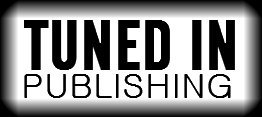So, I’ve been into the studio to record a few songs that I’ve had laying around for years, once the book was finished I decided that it was time to get these songs finished too.
The book was very useful in getting these songs over the finish line. When you have songs hanging around for years and a memory as bad as mine, you need some way of getting back up to speed with them quickly when you do eventually get some time to play them. By writing down the chord progressions, target notes and modes on one of the Cheat Sheets from the book I was able to come up with some interesting stuff for these songs quite quickly when it was required.
Here is a copy of my (messy) Cheat Sheet from ‘Always Alone’,
…and you can hear the final song via this link to Bandcamp.
https://paulramsay1.bandcamp.com/track/always-alone
I primarily used the F and C major scales for the outro solo which gave me a minor sound when played over the chords in that progression, with a bit of Phrygian and Dorian mixed in. I also threw in the odd C# here and there when playing over a D chord as this sounded good to me (maj7th). I used Dm pentatonic scale patterns as they sounded good (as always!), especially for the first solo and bits in the middle. By using the scale patterns laid out on the Cheat Sheet, even sticking to a simple minor pentatonic scale, I was still able to travel all over the neck and find some nice finger patterns to suit the sort of lick that I wanted to hear.
As usual we ended up recording the backing tracks at a much faster tempo than I had planned, which always makes adding my carefully constructed solo ‘interesting’! So the outro solo had to be recorded at home, once I’d had time to get the licks up to speed… That always seems to happen with us, it must be the nervous excitement of being in the studio makes us all play faster. One reason could be that I’ve always hated recording to a click track, I think that takes away a lot of the human expression in a song, I like a rock song to speed up a bit here and there, where needed, to add some dynamics. It’s worth noting this if you are planning to record a tricky/fast solo over a song, even if it’s a few bpm faster than you’re used to then you’ll be in trouble when:
- You’ve never played those licks that fast before
- Your hands are clammy/cold/sweaty* (*delete as applicable)
- Everyone’s watching
- You’re against the clock
- Your tone/gain is not what you’re used to
- Etc… etc…
In one song I changed one fast solo lick to a slower version because it sounded rushed and the end result actually sounds way better and much more musical.
The next few songs that I plan to record to finish the album will include a very fast hard-rock instrumental, so if that comes out too fast them I’m going to be in trouble!
